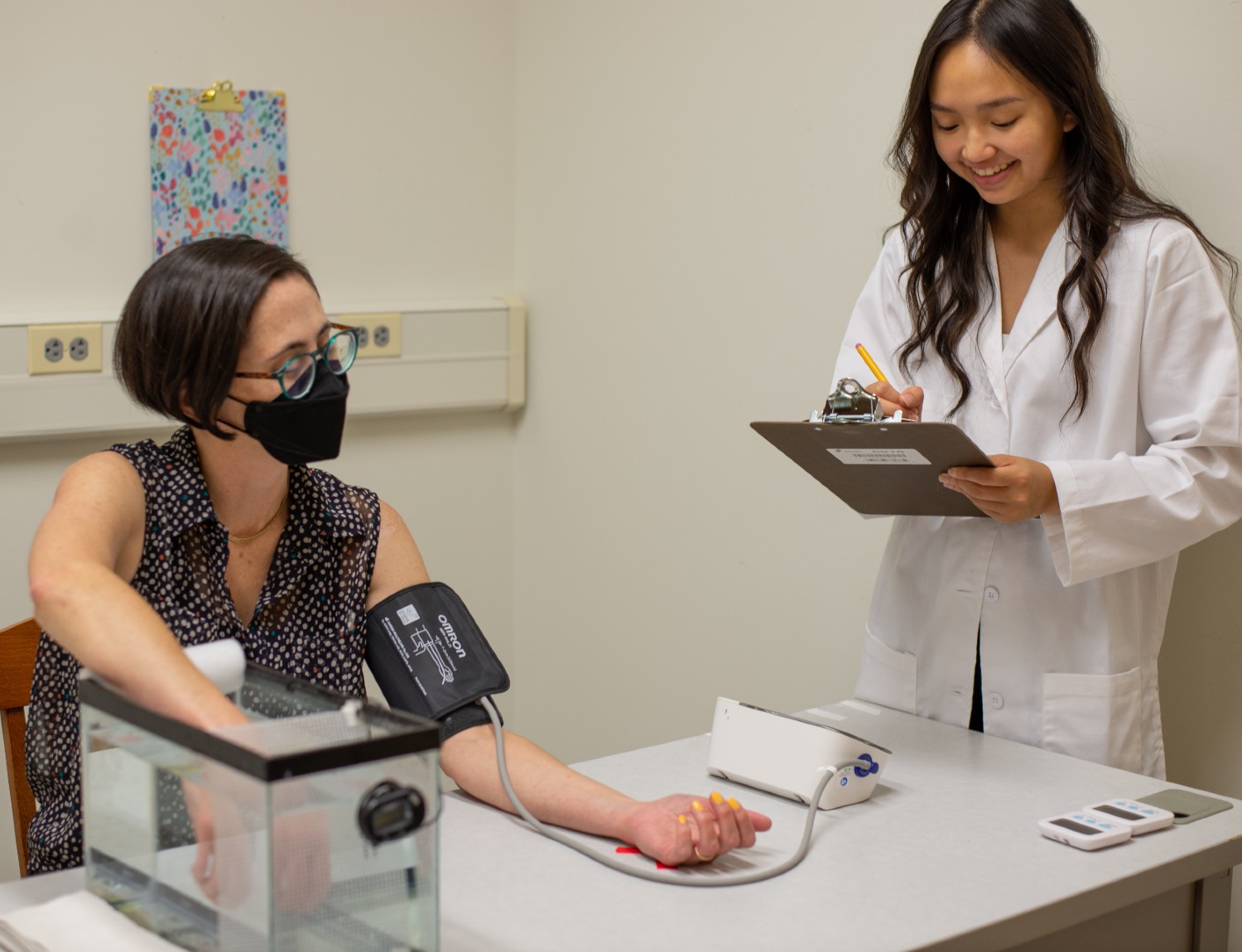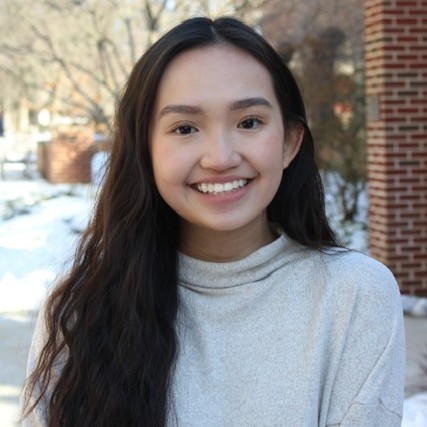Rising Senior Investigates Effects Of ‘Social Buffering’ During Neuroscience Summer Research
Alissa Le ’23 says her summer research has been fascinating, opening the door to more questions while also teaching her to value her own place in the world of science.By: Sarah Wojcik Tuesday, August 23, 2022 02:18 PM
 Alissa Le '23, right, investigates the concept of social buffering during summer research with Assistant Professor of Neuroscience Leah Wilson.
Alissa Le '23, right, investigates the concept of social buffering during summer research with Assistant Professor of Neuroscience Leah Wilson.Just about any student can relate: the anxiety of studying for a challenging final alone versus hunkering down with friends to master the material together.
There’s something unmistakably different about those two experiences, and neuroscience major Alissa Le ’23 spent her summer working toward better understanding this phenomenon, known as social buffering.
In her sophomore year, Le became involved with the lab of Assistant Professor of Neuroscience Leah Wilson, after striking up a mentorship while taking her first neuroscience course. Le was fascinated by the discipline and though the material was challenging, she was buoyed by Wilson’s faith in her abilities.
“She nurtured me as a student but also as a person,” Le said. “The relationship with my professor encouraged me to continue engaging in this difficult material because it really was hard and I wanted to give up on it all the time. But because we had fostered that connection together and I knew Dr. Wilson was dedicated to teaching the material and saw me as a person, it really made me want to keep going with it.”
Wilson’s lab was exploring the concept of social buffering, which explains how physiological markers of stress can be lowered when people or animals are experiencing the same stimuli together. Le found the topic interesting and began to wonder about the ways this could affect learning.

“I learned that it’s harder to retrieve memories when you’re stressed. And I was like—wait a second—this is what college exams are like. And I started to wonder, philosophically, whether test taking when you’re really stressed is an accurate marker of the actual knowledge or just a way to show you work well under stress?”
This summer, Le started her research by first testing whether there are marked physiological differences when people are exposed to a stressor alone versus with a friend. The stressor being used in her lab is a tank of cold water that participants must dunk their hand into while equipment takes stock of their vital signs.
Le would eventually like to unpack the ways in which social buffering can help overcome stress-based learning barriers.
Better understanding of the effects of social buffering can give scientists the tools to understand the tangible health benefits of such social support in a new light, Le said.
The research process has surprised Le in numerous ways beyond the scientific digging. She said she’s learned a lot about herself and what it means to uncover something new in a lab.
“I had a lot of misconceptions about science and what it means to participate in scientific research,” Le said, “I always thought it would make you more of an intellectual or like that certain sciences—like chemistry or neuroscience—were harder and therefore people that do them are better in some way. But working in Dr. Wilson’s lab, I’m learning to value myself as a person, before any of the work. This feels more like learning as a person while also learning as an academic and I know my perspective on so many things has changed. Going into research, I didn’t think I’d learn all of these things.”
